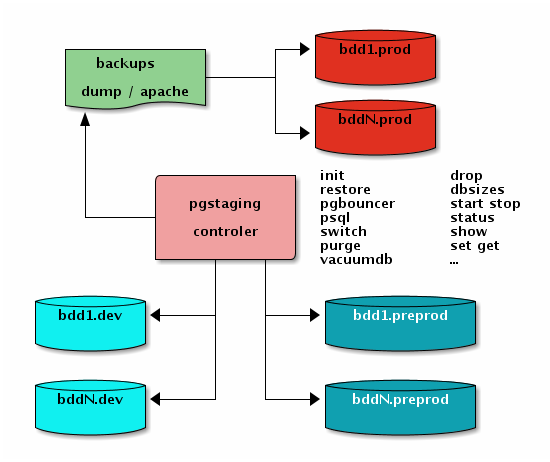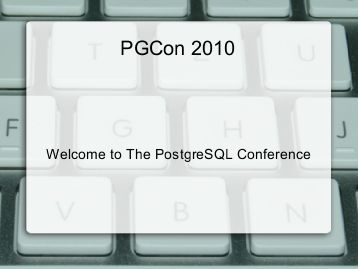If you don’t remember about what pg_staging is all about, it’s a central console from where to control all your PostgreSQL databases. Typically you use it to manage your development and pre-production setup, where developers ask you pretty often to install them some newer dump from the production, and you want that operation streamlined and easy.
Usage The typical session would be something like this:
pg_staging> databases foodb.dev foodb foodb_20100824 :5432 foodb_20100209 foodb_20100209 :5432 foodb_20100824 foodb_20100824 :5432 pgbouncer pgbouncer :6432 postgres postgres :5432 pg_staging> dbsizes foodb.



